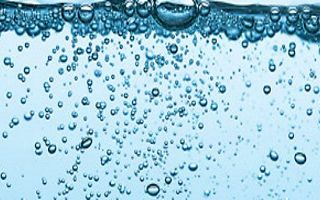Flatulence is bloating as a result of excess accumulation of gases in the intestines. It is the most common cause of intestinal discomfort.

Content
What is flatulence?
Almost everyone sometimes experiences a feeling of bloating, even if they do not have intestinal diseases. If this happens occasionally, then there is no need to worry. But if there is a constant accumulation of gases in the intestines, or severe gas formation occurs, then you should consult a doctor.
Gases in the abdomen are formed due to swallowed air, their release during digestion and gases formed during the enzymatic breakdown of food residues by microbes; a certain amount can enter the intestines from the blood.
Causes of flatulence
The causes of excess gas accumulation in the intestines can be:
- swallowing air (aerophagia),
- increased formation of gases,
- decreased absorption of gases,
- insufficient excretion from the intestines,
- intestinal obstruction.
Aerophagia
The most common cause is increased air swallowing - aerophagia. The air is swallowed with saliva and food. Excessive salivation increases air swallowing.
Increased secretion of the salivary glands (hypersalivation) often appears
- for neuroses,
- during the period of emotional reactions,
- with mental stress (during prolonged stress),
- in patients with gastroduodenitis, peptic ulcers, and diseases of the biliary tract.
Large amounts of air can be swallowed when eating hastily, swallowing insufficiently chewed food, or swallowing large sips of liquids.
Eating chewing gum, sucking hard candies, smoking cigars, pipes - all these are habits that provoke excessive salivation and are the causes of aerophagia.
Nasal congestion with rhinitis and sinusitis forces you to breathe through your mouth and provokes increased swallowing movements, which increases additional air flow into the stomach.
Often patients with peptic ulcers, reflux esophagitis, gallbladder diseases, intestinal dyskinesias, angina pectoris have the habit of causing belching to eliminate discomfort. It also promotes the flow of air into the esophagus and stomach. When burping, the upper esophageal sphincter opens and air is sucked into the esophagus.

Excessive gas formation
Carbon dioxide in the gastrointestinal tract is formed as a result of the interaction of hydrochloric acid and bicarbonates of saliva, bile and pancreatic juice. Its amount can increase when drinking carbonated drinks and mineral waters, taking medications (soda, calcium carbonates) with increased secretion of hydrochloric acid.
In addition, a number of gases, such as carbon dioxide, hydrogen, methane, hydrogen sulfide, indole, skatole, etc., are released as a product of the vital activity of microorganisms in the intestine during the enzymatic breakdown of food residues, or in other words, as a result of the processes of rotting and fermentation.
In healthy people, microorganisms colonize only the large intestine. The enzymatic activity of microorganisms contributes to the breakdown of food residues that have not been digested by food juices (fiber, cell membranes, connective tissue) and the normal formation of feces.
The most common cause of flatulence associated with microflora is the colonization of the small intestine by the microflora of the large intestine. In this case, part of the food coma of the small intestine undergoes bacterial enzymatic breakdown and gases are formed, which normally should only be contained in the large intestine.
With intestinal diseases, the process of gas formation in the colon is often disrupted. The causes of severe gas formation in the colon may be
- too rapid movement of food through the small intestine and, as a result, insufficient breakdown of food,
- production of insufficient enzymes by the digestive glands,
- or a combination of these two factors.
Poor absorption
In patients with heart failure and impaired central circulation, the absorption of gases in the intestines is often impaired, which also leads to bloating.
Intestinal obstruction
Finally, flatulence may be a sign of mechanical and dynamic intestinal obstruction. It may also be an early symptom of peritonitis as a manifestation of paralytic obstruction.
Symptoms of flatulence
Symptoms of flatulence depend on what causes excess gas formation in the gastrointestinal tract. Often, in the same patient, flatulence is due to several reasons.
- Aerophagia is more common in patients with functional intestinal diseases - irritable bowel syndrome, disaccharidase deficiency,
as well as in patients with neuroses, peptic ulcers, gastroduodenitis, cholecystitis. - When air is swallowed or sucked in, excess air accumulates in the stomach after eating. People experience a feeling of rapid satiety, a feeling of fullness, as well as pressure and bloating in the epigastric region after eating, and belching of air often occurs.
- An increase in the amount of gases in the intestines with severe gas formation causes a feeling of pressure and distension in the abdomen. This type of flatulence is characterized by increased gas production in the afternoon. Air often accumulates in places of physiological flexures of the colon - in the right and especially in the narrowest left flexures. Stretching of these sections, especially in combination with spasms of the underlying sections of the intestine, causes abdominal pain, usually long-lasting, dull and pressing.
Diagnosis of flatulence
The presence of excess gas in the intestines is determined by the doctor during examination.
With flatulence, the stomach is evenly swollen.
If asymmetrical local protrusions of the abdomen are observed, this indicates an accumulation of gases in one of the intestinal loops. This often indicates a violation of intestinal patency. An accurate diagnosis can be made using plain radiography.
Pseudoflatulence
Flatulence should be distinguished from pseudo-flatulence.
Pseudometorism (Alvarez syndrome) is a neurogenic disease consisting of periodic enlargement of the abdomen.
The abdomen enlarges within minutes or hours and can remain this way from a few minutes to several months. Pseudometorism decreases during sleep, after blockade of sympathetic nodes or administration of morphine. The cause of the disease is spontaneous contraction of the muscles of the back, diaphragm and abdominal muscles. Pseudometorism is observed mainly in patients with hysteria due to aerophagia (swallowing air).
Treatment of flatulence
Treatment of flatulence largely depends on the causes that cause it and is aimed at treating the underlying disease in which flatulence develops.
Persons with an unstable psycho-emotional state, neuroses, who have been in a state of stress or conflict for a long time, often complain of bloating. In this case, a consultation with a gastroenterologist should confirm that such a patient does not have diseases of the digestive system. This condition is called irritable bowel syndrome and is treated using appropriate methods.
To reduce the amount of gases formed during the enzymatic breakdown of nutrients by microbes, treatment is carried out aimed at eliminating dysbiosis and improving the processes of intestinal digestion and absorption.
How to treat bloating at home?
To improve the removal of gases from the intestines, so-called carminatives are used.
- Dill oil should be taken 5-6 drops with meals.
- Carminative mixture: mix equal parts of peppermint leaves, fennel fruits, valerian root. Pour 1 tablespoon of the mixture into a glass of boiling water and leave. Drink half a glass in the morning and evening. The collection has an antispasmodic effect and promotes the release of gases during flatulence.
- Caraway fruits. Take them in the form of an infusion, pour 10 grams of cumin fruits with a glass of boiling water and let it brew. Take 1 tablespoon of infusion 2-4 times a day.
Medicine for bloating
Plantex is used in children with digestive disorders. It is prescribed 1-2 sachets (5-10g), previously dissolved in 100-150 g of water.
To reduce flatulence, combination preparations have been created containing pancreatin and dimethicone (pancreoflat and zymoplex), as well as meteospasmil (a combination of synethicone and alverine).
Nutrition for flatulence
If flatulence is severe, then you can use the 4c therapeutic diet .
In most cases, to reduce bloating, a balanced healthy diet is enough; in the diet, you should limit foods that contribute to increased gas formation. These include legumes, cabbage, wholemeal bread, and carbonated drinks.
It is recommended to eat food 5-6 times a day in small portions. Allow enough time to eat, take your time, and chew well.
Do not talk while chewing food, so as not to swallow air with food.

What else helps with flatulence?
Drinking mint in tea prevents unpleasant odor when gases are released and at the same time acts as a sedative and relaxant.
Gentle massage of the abdomen in a clockwise direction relaxes the stomach and promotes digestion and elimination of gases.
Heat also relaxes the abdomen and reduces pain.
Moist heat, such as a warm wet wrap or a heating pad with a damp towel, is especially recommended. Warm baths also help, they have a relaxing effect. Additional recommendations can be found here .
Intestinal diseases causing flatulence
Flatulence can be a symptom of a number of diseases, such as:
- gastritis,
- intestinal infections,
- diverticulosis,
- diverticulitis,
- celiac disease (gluten intolerance),
- Crohn's disease,
- ulcerative colitis,
- stomach ulcer,
- duodenal ulcer,
- stenosis (narrowing) of the intestine,
- acute stomach,
- intestinal obstruction,
- paresis (paralysis) of the stomach,
- paresis (paralysis) of the intestines,
- intestinal atony (loss of muscle tone),
- disorders and diseases of the pancreas,
- liver diseases,
- heart failure,
- diabetes,
- tumors of the pelvic and abdominal organs.


 (6 ratings, average: 4,67 out of 5)
(6 ratings, average: 4,67 out of 5)




